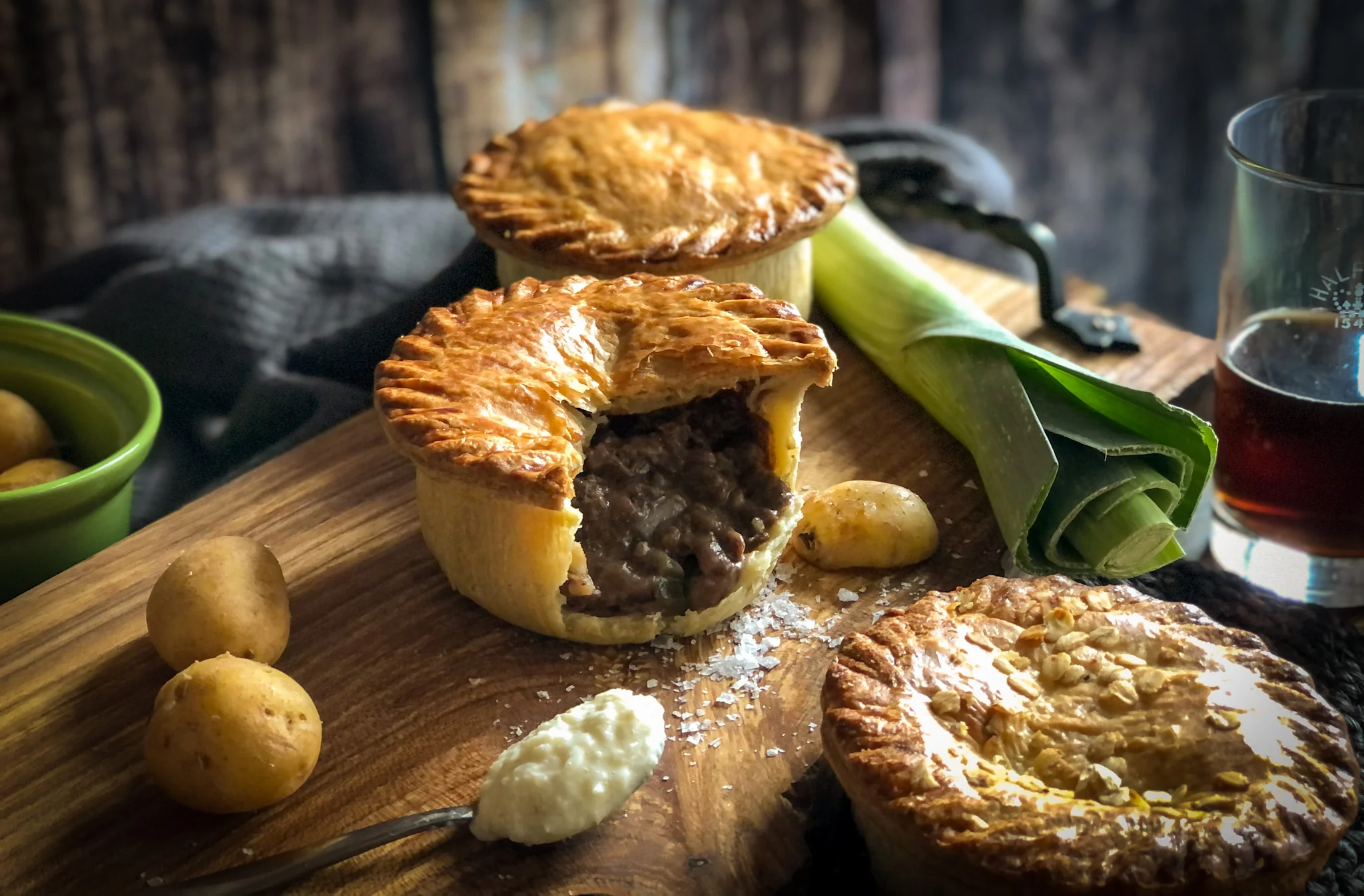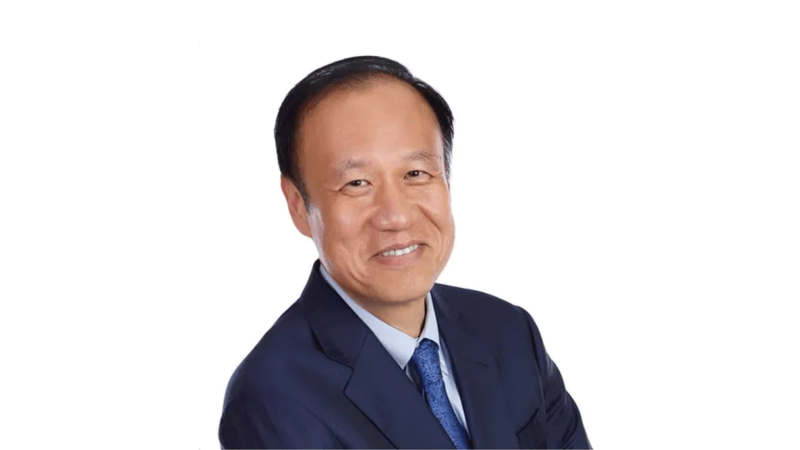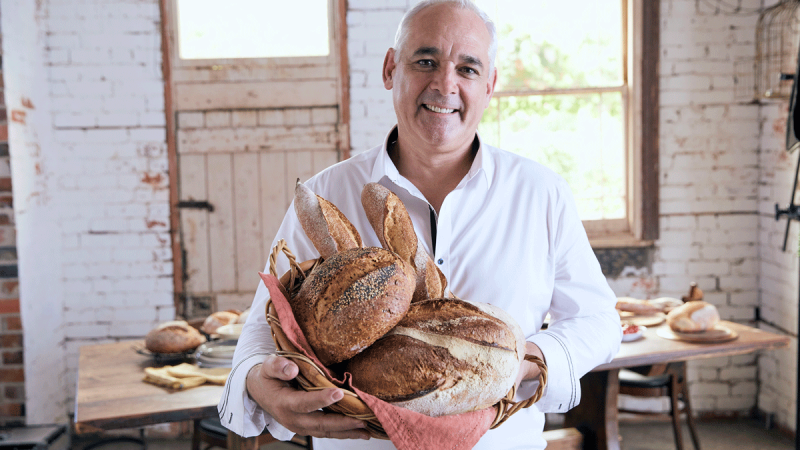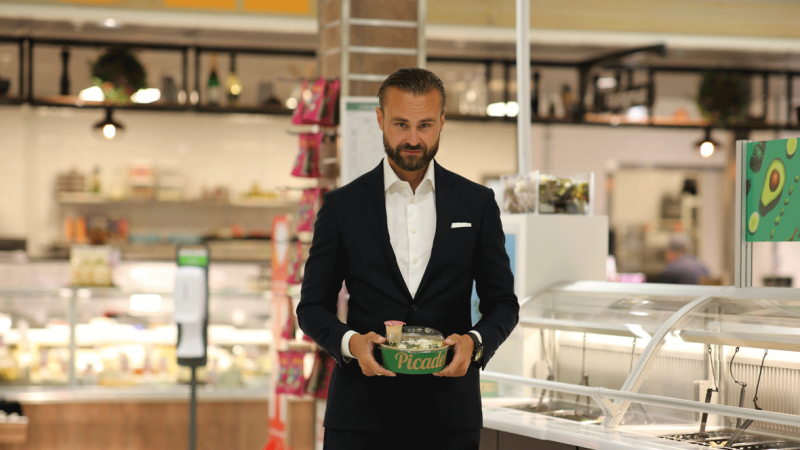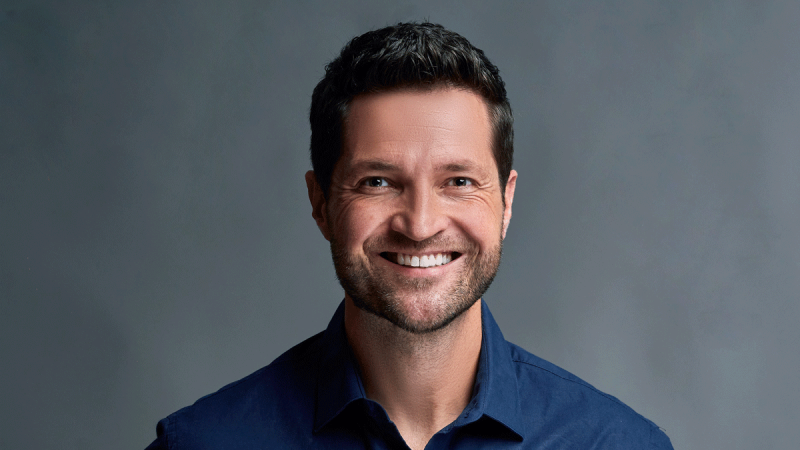Wilf Lewis did not set out to run the family pastry business. He had built himself a successful career working for a software company providing applications to the real estate sector, and was all set to build on that.
But then family considerations entered the picture.
“I could see my dad was struggling to manage the business. So, I talked to him and decided to come and give him a hand,” Lewis tells us. “My dad ran the business in a very old-school, autocratic way. There was no management structure. He did a lot of things himself, from engineering to buying, and spreading yourself that thin makes it difficult to run a business effectively.”
A Family Saga
The business was Lewis Pies, a family-run company that has been around since 1936, when it was founded by Wilf Lewis’s grandfather.
“He started the business in a very small property in the Sandfields, Swansea,” Lewis recalls. “He started in one van, driving around to local shops and with three or four pies and a pasty, and that’s largely how the business looked.” 
Lewis’s grandfather was not the only one with the entrepreneurial spirit, soon the whole family was getting in on the action.
“My nan was quite entrepreneurial as well, which was unusual at the time,” Lewis says. “They ran quite a popular café for the hip kids. We had the first jukebox in Swansea! My dad very much grew up in a business family with lots of brothers and sisters. It was a very busy business environment. My granddad had stayed home from the war and got involved in all sorts of things, such as buying fat and selling it in the local market. Of all of these, the bakery and the café were the businesses that stuck, and my dad was raised in that environment.”
When Lewis’s father was 15, he left school and got to work.
“He was one of three brothers, and he took a lead as the more entrepreneurial of the three, working with my granddad in the family business,” Lewis says. “It was still a very local business, but he expanded it, drove it forward to three different sites, the third of which we’re still at today.”
This took place at the peak of the “van” age.
“Everyone had a milkman and a pie man and a potato man, and my dad was running vans across South Wales and Bristol serving chip shops and that type of business,” Lewis says.
From there, Lewis Pies expanded into wholesale operations, working with larger contractors and some retailers, delivering to supermarkets out of the back of a van.
“That world has very much changed now,” Lewis points out.
And so, in 2013, Wilf Lewis returned to the fold to help modernise the business. But things did not go exactly how he expected.
Different worlds
Moving from real estate software to pastry was a big adjustment.
“They are two very different worlds. The margins are very different. When you sell pies, they are more of a commodity than software, so you make much less money,” Lewis explains. “You are also dealing with very different types of people. In software, you create an environment that people want to work in. Like British Airways or Virgin, we wanted to create an environment with lots of social nights, an X-box in the office, bean bags etc. Manufacturing is very different. People want to earn a buck and get home as soon as they can.”
Still, while the businesses were different, Lewis had a lot to offer when he returned to the family business. The business was struggling, it had a lot of debt, and there were real concerns about whether the business could continue.
“There were a lot of things wrong with the culture, and a lot for me to take on board,” Lewis says. “Working with a family business is a huge challenge, it can be hard on relationships with your family and loved ones. You still see your parents as parents, but then you are working with them.”
If Lewis’s father thought he was going to join the company to sit in a corner and type on a computer, he was mistaken. In his previous career, Lewis had studied lean management, including Kaizen, the Japanese model of efficiency he wanted to bring to Lewis Pies. But even then, he did not consider this a long-term career change.
“Initially I thought I would be here for two or three years, then move back to software,” Lewis says.
The Upper Crust
Currently, Lewis has seen his company’s products selling into a range of markets, with some exciting potential ones on the horizon.
“We are working a lot with premium products. We have premium pies we sell online to a diverse range of customers, premium contracts for selling into pubs and online, as well as value products for large contracts,” Lewis says. “We also sell into wholesale businesses, larger volume buyers. Airline is a sector we are working hard on developing, with some good contracts there.”
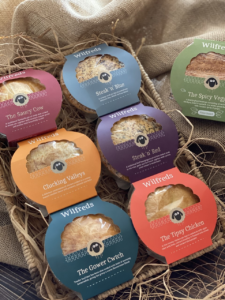 For Lewis, the key to all of these markets is going to be consistency, ensuring the product you sell is the one customers expect.
For Lewis, the key to all of these markets is going to be consistency, ensuring the product you sell is the one customers expect.
“Something that we have worked very hard on for the last ten years is delivering a consistent product. We are breaking down what we do and making it more reliable across the board.”
This is where Lewis’s history in the software industry has come in useful.
“We have built a software platform within the business that gives us a huge amount of data to cost-efficiently deliver information to the customer,” Lewis says. “I wanted to make my team directly accountable to the customer. When you place an order with Amazon you get a lot of information- what you have paid, confirmation when the seller has the order, when they pick it pack and where it is on the road. That is incredibly powerful.”
Lewis wants to provide similar transparency to his customers. When we speak to him the company has 80% of this functionality in place. The goal is for customers to know when Lewis Pies has received an order, when the production manager has put it in the production queue, and when it is produced and baked, including photos.
“I want them to know when it’s packed and on the back of a wagon,” Lewis says.
That data is useful to the business as well.
“If I run a square cheese pasty, sometimes you can run 6,000 pasties in an hour, sometimes you can run 5,500, and sometimes you can run 7,500,” Lewis explains. “But if I know that on average, we are running 6,000 parties an hour I can cost on that basis, give the customer an accurate price and know what my margins will be. Managing waste is a great example. Some products generate more waste, so I can tell the customer that and they understand why I’m charging what I’m charging.”
Lewis’s goal is to make all of this information available through one portal rather than ten different pieces of software.
When that is achieved, maybe he will go back to the software business. But it is just as likely he will find more to do at Lewis Pies.
